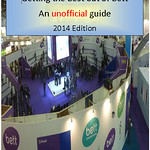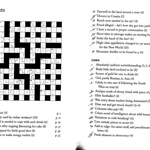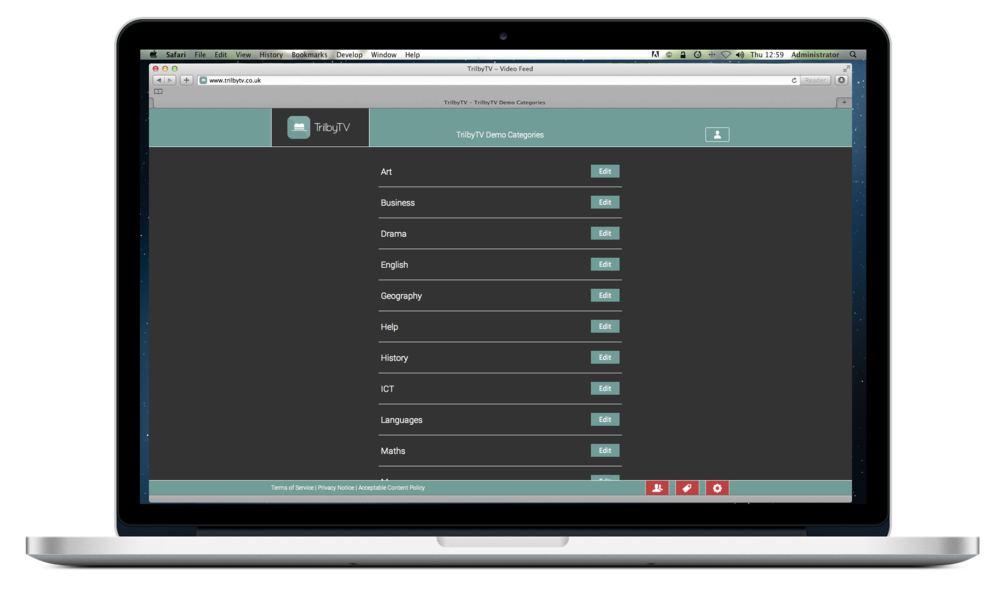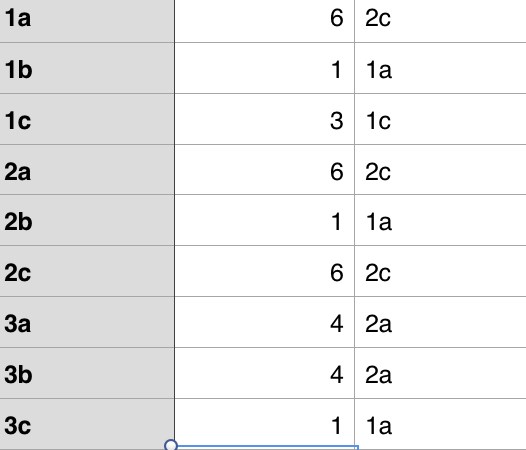 The Bett show starts on 22nd January, and as usual we have produced an unofficial guide called Getting the best out of Bett.
The Bett show starts on 22nd January, and as usual we have produced an unofficial guide called Getting the best out of Bett.Assessing “soft” skills
Do you have anything you’d like to add to the discussion, Terry?
The scene was a meeting at the Edusummit conference at UNESCO in Paris in 2011. The question came from the Chair.
Thank you, but no: everything I was going to say has already been said.
That was my response, because I didn’t see any purpose in repeating points that had not only been made, but also generally agreed upon. In fact, my contributions to many meetings are based on Salvator Rosa’s, dictum:
Be silent, unless what you have to say is better than silence.
The question is: does that make me a good collaborator, or not so good? How do we measure such things? And does any of it matter anyway?
Crafting the perfect eTextbook
 Starting very soon is a 5 week online course called Crafting the perfect eTextbook. I’m slightly biased, because I’m involved in it, but it is shaping up to be really great.
Starting very soon is a 5 week online course called Crafting the perfect eTextbook. I’m slightly biased, because I’m involved in it, but it is shaping up to be really great.
The syllabus consists of, in brief:
5 tips for BETT
 My annual guide to Getting the Best out of BETT is pretty much complete. I’m just waiting for one more item to be sent to me, and then it’s all systems go. I’ll be making it available to subscribers to our newsletter first, and then more widely. In the meantime, I thought I’d publish a few extracts from it. These extracts are just a small sample: there are over 150 suggestions altogether
My annual guide to Getting the Best out of BETT is pretty much complete. I’m just waiting for one more item to be sent to me, and then it’s all systems go. I’ll be making it available to subscribers to our newsletter first, and then more widely. In the meantime, I thought I’d publish a few extracts from it. These extracts are just a small sample: there are over 150 suggestions altogetherPlagiarism in education
Applying computational thinking in the “real world”
 One of the justifications for teaching computing and coding is that “computational thinking” is a useful skill for pupils to have, in order to apply it in wide variety of situations. A worthy aim, but I’ve heard very few convincing examples given. Actually, I don’t think I’ve come across any examples of how pupils might use computational thinking in a broader context, or how it applies beyond the relatively narrow confines of computer science.
One of the justifications for teaching computing and coding is that “computational thinking” is a useful skill for pupils to have, in order to apply it in wide variety of situations. A worthy aim, but I’ve heard very few convincing examples given. Actually, I don’t think I’ve come across any examples of how pupils might use computational thinking in a broader context, or how it applies beyond the relatively narrow confines of computer science.
However, Anna Shipman, a software developer, currently working for the Government Digital Service, believes that a software development approach can and should be taken in other areas of life. In particular, she relates how it proved useful in the context of fixing a leaky roof.
Competing with World of Warcraft
 I’ve just started reading Focus, by Daniel Coleman. If a book may be judged by the degree and speed with which it raises one’s blood pressure, I have to say this is pretty good value. I’m only 3% in, according to my Kindle status bar, and already I’ve found three things to disagree with. And let’s not forget that that 3% includes all the “prelims”, i.e. title and copyright pages, table of contents, and so on.
I’ve just started reading Focus, by Daniel Coleman. If a book may be judged by the degree and speed with which it raises one’s blood pressure, I have to say this is pretty good value. I’m only 3% in, according to my Kindle status bar, and already I’ve found three things to disagree with. And let’s not forget that that 3% includes all the “prelims”, i.e. title and copyright pages, table of contents, and so on. Preparing for the new Computing curriculum: What if #5
 Would it be possible to create a self-referential puzzle or challenge? And if so, could it be helpful in the teaching of computing?
Would it be possible to create a self-referential puzzle or challenge? And if so, could it be helpful in the teaching of computing?Season’s Greetings!
 Thanks for reading this blog. Hope everyone enjoys a good break!
Thanks for reading this blog. Hope everyone enjoys a good break!
Here is our family portrait. If it’s good enough for the leaders of our political parties…
Firewall foibles, and how I survived them
 It was when my wireless router told me that there was no printer on the network that I finally flipped.
It was when my wireless router told me that there was no printer on the network that I finally flipped.New technology to inspire learning in schools
 Sponsored article. Many schools across the country have invested in tablet technology, but are they using them to their full potential? Research indicates that used correctly, tablets are fantastic learning tools and can really inspire students and aid teaching. A potential barrier to tablet technology being fully utilised in schools is the complexity of storing and moving work and sharing finished pieces between students and staff.
Sponsored article. Many schools across the country have invested in tablet technology, but are they using them to their full potential? Research indicates that used correctly, tablets are fantastic learning tools and can really inspire students and aid teaching. A potential barrier to tablet technology being fully utilised in schools is the complexity of storing and moving work and sharing finished pieces between students and staff.A bit of a tiff
 Here’s a little tip for you: don’t upload stuff at past midnight, especially if you’re running on adrenalin and strong tea.
Here’s a little tip for you: don’t upload stuff at past midnight, especially if you’re running on adrenalin and strong tea.6 Ways to respond to requests for pointless data
 So, there you are, basking in your new-found freedom to report to parents what their children can actually do in Computing and ICT, when the data impresario in your school says they want you to supply the school office with a “Level” for each child. And for good measure, they want you to do that four times a term in order to monitor progress. How should you respond?
So, there you are, basking in your new-found freedom to report to parents what their children can actually do in Computing and ICT, when the data impresario in your school says they want you to supply the school office with a “Level” for each child. And for good measure, they want you to do that four times a term in order to monitor progress. How should you respond?Preparing for the new Computing curriculum: what if #4
With that in mind, have you ever researched your own area
Tablets for Schools Conference
How to collaborate with other schools when you're not allowed to
Who cares about WALT and WILF?
 I have a confession to make. You see, it’s like this, officer. I can never remember what WALT and WILF stand for. I know they’re acronyms to do with assessment for learning, but I can never recall what the letters stand for.
I have a confession to make. You see, it’s like this, officer. I can never remember what WALT and WILF stand for. I know they’re acronyms to do with assessment for learning, but I can never recall what the letters stand for.
But it’s worse than that, your honour. I don’t even care.
11 Reasons to collaborate with other schools in implementing the new Computing Programme of Study
 John Donne wrote that no man is an island; he might have said the same thing about schools. Many schools have a mindset perhaps best described as “splendid isolation” – except that there is nothing splendid about it. In fact, in many cases it is just plain daft. Here are my reasons for saying so.
John Donne wrote that no man is an island; he might have said the same thing about schools. Many schools have a mindset perhaps best described as “splendid isolation” – except that there is nothing splendid about it. In fact, in many cases it is just plain daft. Here are my reasons for saying so.5 reasons schools need computing teachers with expertise in the subject
The beauty of expertise
 This article considers the need for computing and ICT to be taught by experts in those subjects. Anything less simply will not do.
This article considers the need for computing and ICT to be taught by experts in those subjects. Anything less simply will not do.